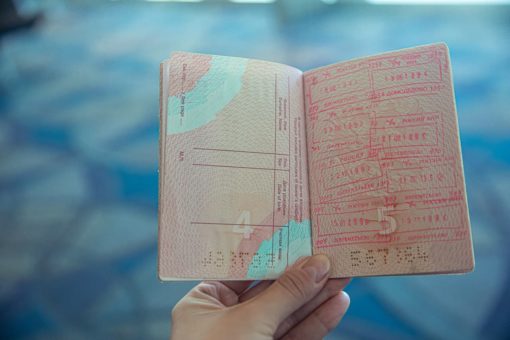In recent years, medical tourism in Europe has experienced exponential growth.
In fact, research reveals that health tourism comprises around 5% of all tourism in Europe.
If you’re travelling to Europe to seek medical care but aren’t sure whether you need to apply for a Schengen Visa beforehand, or what documents you need to submit, this post is for you.
We’ll answer some common Schengen Medical Visa questions and provide you with expert tips to ensure you will be successful with your application.
Table of contents:
- What is a Schengen Medical Visa?
- What documents are required when applying for a Schengen Medical Visa?
1. What Is a Schengen Medical Visa?

A Schengen Medical Visa is a short-stay type-C Schengen Visa that enables you to enter the Schengen Area and get medical treatment for your health condition.
A type-C Schengen Visa allows you to spend up to 90 days in any 180-day period within the Schengen Area (the 90/180-days rule).
If you don’t know whether you need to apply for a Schengen Visa to get medical treatment in Europe, please check out this post.
We recommend that you read it carefully to find out whether your country has reached a Visa-free agreement with the Schengen Member States or not.
If your country of citizenship has established a Visa-free agreement with the Schengen States, you do not need to apply for a Schengen Visa for Europe.
However, you may be eligible for an ETIAS Visa Waiver, which is a travel permit that’s relatively easy to obtain.
If your country of citizenship has not established a Visa-free agreement with the Schengen States, then you need to apply for a Schengen Visa – even if you’re travelling to seek medical care.
Please note that if your medical treatment is foreseen to last longer than 90 days, you should instead apply for a National Visa for medical purposes.
Each Schengen Member State has its own rules for issuing a National Visa for non-EU citizens.
It is therefore necessary to contact the services of the country you will be travelling to know the requirements to be met.
2. What Documents Are Required When Applying for a Schengen Medical Visa?

The required documents when applying for a Schengen medical Visa are as follows:
| ● One Visa application form fully completed and signed Note: In the application form, you must indicate “medical reasons” as the purpose of your journey. |
| ● Two recent photos (for more information, please check our Schengen Visa photo requirements guide) |
| ● Valid passport not older than ten years and with at least two blank pages |
| ● If applicable: older passports with Schengen Visas on them |
| ● Round-trip flight reservations of bookings |
| ● Schengen Travel Insurance with a minimum of 30,000 euros coverage |
| ● Proof of accommodation, such as: ➢ A sponsorship letter or accommodation sponsorship letter ➢ Hotel reservations or bookings ➢ Rental agreement confirming that you have rented a room or apartment in a Schengen country ➢ Proof of accommodation in an EU Clinic/Hospital |
| ● Proof of financial means showing you can afford to cover the medical expenses and other expenses throughout your stay in the Schengen Area. This can be one of the following: ➢ Your bank account statements for the last 3-6 months ➢ A sponsorship letter containing your sponsor’s contact details, bank statements, and a copy of their ID or passport ➢ Your last 3-6 months of bank account statements + a letter of sponsorship (if someone is partially supporting your medical and trip expenses) ➢ Your last 3-6 months of bank account statements + proof of advance payments for the treatment ➢ Your last 3-6 months of bank account statements + a Verbal Note from your country’s Ministry of Health stating that the government of your country is paying for your medical treatment |
| ● Cover letter addressed to the Visa officials outlining your travel purpose |
| ● Proof of paid Visa fee |
| ● If applicable: Civil status proof (e.g., marriage certificate) |
| ● Utility bill as proof of address (only if the utility bill is under your name) |
| ● Certified passport copy |
| ● Certified birth certificate copy |
| ● A letter from a doctor, clinic, or hospital in your country of residence outlining that you need medical treatment |
| ● Invitation letter from an EU clinic or hospital confirming your treatment in a Schengen medical institution Note: Your invitation letter must highlight what kind of medical procedure you will undergo, the cost of the treatment, how you will pay for the treatment, and the hospitalisation dates |
| ● If available: Correspondence between the sending doctor, clinic, or hospital and the receiving medical institution |
| ● If employed: ➢ Employment contract ➢ Leave permission from the employer ➢ Payslips for the last 3-6 months ➢ No Objection Certificate (NOC) Letter from Employer ➢ Certificate of Employment (COE) ➢ Personal Income Tax Return (ITR) |
| ● If self-employed: ➢ Business Registration Certificate ➢ Business licence ➢ Business Income Certificates ➢ Company Bank Statements for the last 3-6 months ➢ Company Income Tax Return |
| ● If you’re a student: ➢ Student No Objection Letter (NOC) stating that your School or University has no objection towards you travelling to the Schengen Area ➢ Proof of School Enrolment (or Student Status Letter) |
| ● If retired: ➢ Pension statements for the last 3-6 months |
| ● Copies of all documents |

If you have any specific requirements and need an escort to accompany you on your journey, they also need to apply for a Schengen Visa (if their country of citizenship has not established a Visa-free agreement with the Schengen States).
In that case, be sure your escort submits all the Schengen Visa mandatory documents (e.g., application form, Schengen travel insurance, flight reservations, proof of financial means, etc.).
For more details, please check out this post: Schengen Visa Requirements: What Are The Required Documents?.
When writing their cover letter, it is essential that your escort details their relationship with you as a patient.
If you are relatives, you may need to submit documents proving your degree of kinship (e.g., marriage certificate, birth certificate, etc.).
It is also important that your invitation letter from an EU clinic or hospital outlines that they will be accompanying you during your stay in Europe.
Important note: Even if you’re travelling to Europe for medical purposes, only in rare circumstances you are allowed to extend your short-stay Visa.
For example, if your health is in a very bad condition or cannot stop the medical treatment you are receiving, then the Schengen authorities may extend your visa.
However, if you are in a condition that enables you to return to your home country, and your treatment can be interrupted without any health risks, you cannot extend your Schengen Visa.
Instead, you will be required to return to your country of residence and apply for a Long-Stay National Visa for Medical Reasons.

Conclusion: It is well-known that the Schengen countries have some of the world’s best healthcare systems.
If you seek medical care in any of the 27 Schengen Member States, you might need a Schengen Medical Visa.
Hopefully, this post answers all of the important questions concerning the Schengen Visa for Medical Reasons and the documents that need to be submitted with your application.
With our knowledge of Schengen Visas, Visas Association can help you submit your application with confidence. We will guide you through every step of the process to ensure your application gets approved. Get your Schengen Embassy Requirements Report (SERR) for as little as $7 to find out exactly what documents the Embassy expects based on your personal situation.
